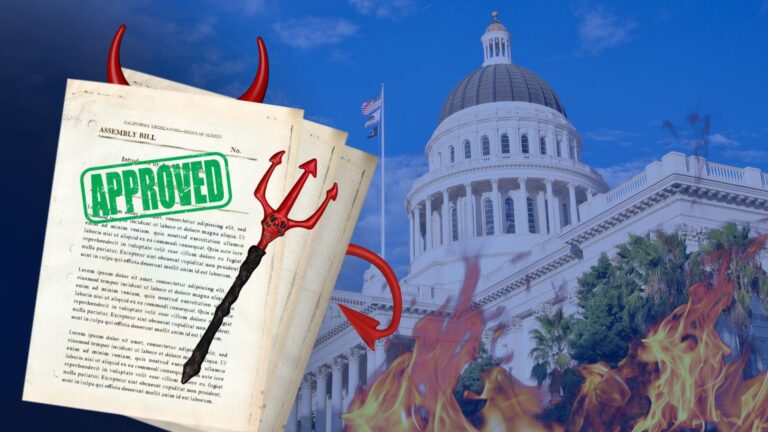A proposed bill in California aimed at addressing foreign interference by foreign governments in the diaspora community has sparked a sharp divide among Indian Americans. The legislation, which seeks to monitor and limit alleged covert influence operations from abroad, has drawn both support and criticism within one of the state’s largest immigrant groups. As the debate unfolds, it highlights the complexities of balancing national security concerns with civil rights and community cohesion in an increasingly interconnected world.
California Legislation Targets Foreign Influence in Diaspora Communities Sparks Debate Among Indian Americans
California’s latest legislative effort to curb foreign interference within diaspora communities has ignited a complex debate among Indian Americans. The proposed bill aims to crack down on covert political influence and financial manipulation allegedly orchestrated by foreign entities. Supporters argue that the measure is necessary to preserve the integrity of local civic participation and protect multicultural communities from external manipulation. However, critics caution that the bill risks unfair profiling and stigmatizing an entire ethnic group, potentially straining communal bonds and fostering suspicion within the diverse Indian American population.
- Supporters Say: The bill safeguards democratic processes from undisclosed foreign agendas.
- Opponents Warn: Risk of racial profiling and erosion of trust within communities.
- Community Leaders: Call for a balanced approach emphasizing transparency and dialogue.
| Aspect | Proponents’ View | Opponents’ View |
|---|---|---|
| Scope | Protects diaspora communities from foreign influence | Could lead to broad and vague interpretations |
| Enforcement | Targets hidden financial channels | May increase government surveillance on ethnic groups |
| Community Impact | Enhances political transparency | May deepen divisions and mistrust |
Divergent Perspectives Highlight Complexities of Identity and Political Allegiance in Indian American Community
The proposed California legislation aimed at cracking down on perceived foreign influence hits a nerve within the Indian American community, exposing a volatile mix of concerns over identity and loyalty. Many community members are caught in a crossfire between those who view the bill as essential for safeguarding democratic processes against foreign interference, and others who see it as an intrusive measure unfairly targeting diaspora connections. This divergence not only reflects differing political allegiances but also underscores a deeper dilemma about where cultural affinity ends and political allegiance begins.
Key points fueling the debate include:
- Varied perceptions of India’s influence in US politics, ranging from benign cultural diplomacy to active interference.
- Generational divides, with younger Indian Americans often advocating for hybrid identities versus older members emphasizing ethnic solidarity.
- Concerns about freedom of expression being compromised by broad definitions of “foreign hits” embedded in the bill.
| Perspective | Primary Concerns | Representative Views |
|---|---|---|
| Supporters | Protecting US democracy from external interference | “Necessary step to prevent covert political influence.” |
| Opponents | Risk of stigmatizing diaspora ties, limiting speech | “Threatens freedom and unfairly targets Indian American voices.” |
| Moderates | Seeking balanced safeguards without alienation | “We need transparency but must avoid creating divisions within the community.” |
The debate around this legislation continues to stir reflection on complex questions of identity, loyalty, and the role diaspora communities play in the political landscape. As the bill progresses, it remains critical to foster dialogue that honors diverse viewpoints and upholds democratic principles without marginalizing important cultural connections.
Experts Call for Inclusive Dialogue and Transparent Policies to Address Concerns Over Foreign Interference
Amid growing concerns over foreign interference in diaspora communities, experts emphasize the necessity of inclusive dialogue that encompasses the diverse spectrum of views within the Indian American community. Scholars and policy analysts argue that unilateral legislative approaches risk deepening divisions and alienating key stakeholders. Instead, they advocate for platforms where different voices-ranging from community leaders, civil rights advocates, and lawmakers-can deliberate transparently on the implications and nuances of such measures.
Transparency in policy-making is highlighted as crucial to build trust and ensure laws do not inadvertently target or stigmatize specific groups. Key recommendations from experts include:
- Comprehensive impact assessments before enacting legislation.
- Regular consultations with diaspora representatives and civil society organizations.
- Clear communication channels to educate the public on the intent and scope of policies.
- Safeguards to protect civil liberties and prevent racial profiling.
| Stakeholder | Primary Concern | Proposed Solution | ||||||
|---|---|---|---|---|---|---|---|---|
| Community Leaders | Division within diaspora | Facilitated community forums | ||||||
| Policy Makers | Effective enforcement without bias | Transparent policy drafts | ||||||
| Stakeholder | Primary Concern | Proposed Solution |
|---|---|---|
| Community Leaders | Division within diaspora | Facilitated community forums |
| Policy Makers | Effective enforcement without bias | Transparent policy drafts |




